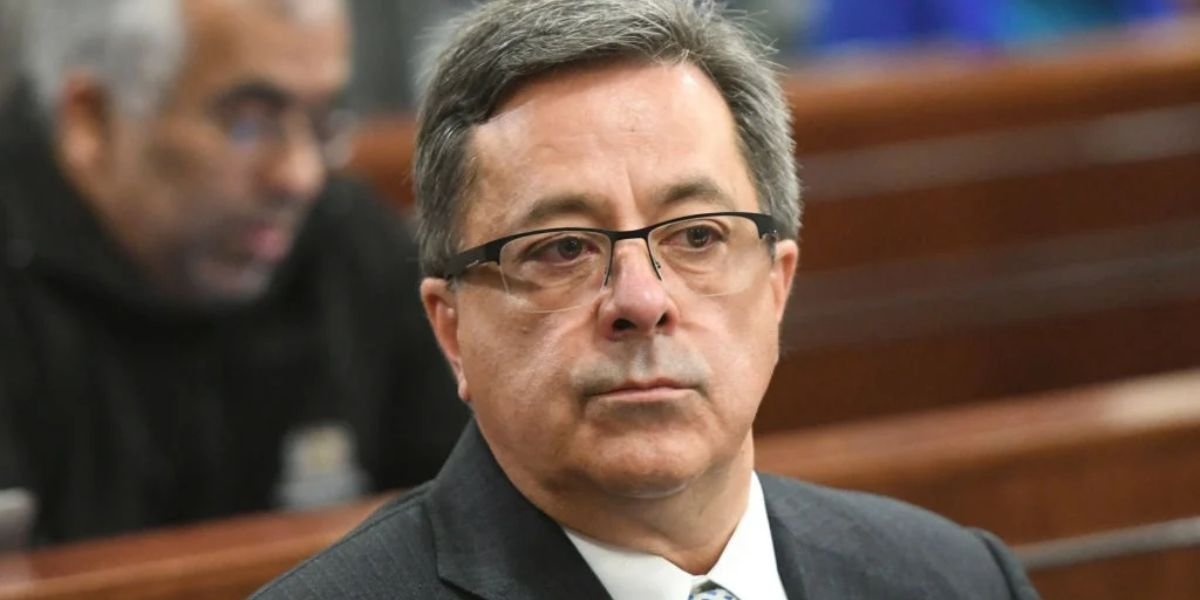The news of former Steinhoff CEO Markus Jooste’s death by suicide has sent shockwaves through the business world. Jooste, once a prominent figure in the corporate landscape, became embroiled in controversy following the accounting scandal that rocked Steinhoff International in 2017. Reports of his suicide come as a tragic conclusion to a tumultuous chapter in Jooste’s life and career.
The scandal, which revealed massive financial irregularities, led to a significant loss of investor confidence and a precipitous decline in Steinhoff’s stock value. Jooste’s sudden departure from the company amidst the unfolding crisis marked the beginning of a legal and financial saga that continues to reverberate across global markets.
As news of Jooste’s death emerges, questions arise about the toll of corporate malfeasance and the human cost of such scandals.
Markus Jooste Death
In a tragic turn of events, a 63-year-old man, reported by local media to be former Steinhoff chief executive Markus Jooste, has apparently died by suicide according to South African police. Jooste, recognized for his pivotal role in the transformation of Steinhoff into a multinational retail giant, had recently been slapped with a substantial fine for his involvement in accounting fraud.
Police have opened an inquest case following the incident, where the man sustained a fatal gunshot wound in Kwaaiwater, a suburb of Hermanus near Cape Town. While investigations are underway, authorities have stated that no foul play is suspected.
Reports suggest that Jooste shot himself during an attempted arrest, although this remains unverified. The Financial Sector Conduct Authority fined Jooste a staggering 475 million rand ($25.2 million) for disseminating false financial statements, which ultimately unveiled the accounting discrepancies leading to Steinhoff’s near-collapse in December 2017.
Jooste, who had consistently denied any knowledge of accounting irregularities, had been under investigation by South African authorities for fraud. The incident marks a tragic end to a tumultuous period for both Jooste and Steinhoff, which has endured significant financial losses and legal battles in the aftermath of the scandal.
Have a Look: Where is Kayla Montgomery: And Who Is Kayla Montgomery Wife?
Who Is Markus Jooste?
Markus Johannes Jooste, born on January 22, 1961, was a notable South African businessman who rose to prominence as the CEO of Steinhoff International. Renowned for his involvement in the corporate world, Jooste’s interests extended beyond business, particularly to his passion for horse breeding. By 2016, he had amassed substantial wealth, estimated at $400 million, earning him a place among Africa’s wealthiest individuals.
Jooste’s career trajectory took a significant turn in 2014 when he partnered with Christo Wiese, initiating an ambitious global expansion program for Steinhoff. However, the conglomerate faced scrutiny following disputes with business partner Andreas Seifert and revelations of inflated profits and off-balance-sheet dealings.
In the wake of mounting controversies and financial irregularities, Jooste resigned abruptly in December 2017, triggering a cascade of investigations and legal battles. The subsequent fallout saw Steinhoff’s value plummet, leading to its eventual demise in 2023.
Despite extensive investigations and legal proceedings, criminal charges against Jooste remained elusive, sparking criticism and demands for accountability from South African lawmakers and investors alike. Eventually, Jooste faced penalties from the JSE, including fines and a ban from holding directorial positions in listed companies. His legacy remains marred by the scandal that engulfed Steinhoff, leaving a cautionary tale about the pitfalls of corporate governance and accountability.
You May Also Like: Fortune Feimster Wife: Exploring Their Love and Life Together
Conclusion
In conclusion, the story of Markus Johannes Jooste is a cautionary tale of ambition, corporate governance, and the consequences of unchecked power. From his rise as the CEO of Steinhoff International to the scandalous downfall of the conglomerate, Jooste’s legacy is marred by allegations of financial irregularities and mismanagement.
Despite extensive investigations and legal proceedings, the full extent of Jooste’s involvement and accountability remains a subject of debate. However, the impact of the Steinhoff scandal reverberates throughout South Africa’s business landscape, highlighting the need for stringent oversight and ethical leadership.
Jooste’s journey serves as a stark reminder of the importance of transparency, accountability, and ethical conduct in corporate governance, underscoring the profound ramifications of greed and corporate malpractice on investors, employees, and the broader economy.
Stay tuned with us for more exciting articles and updates on our website. Don’t miss out on the latest buzz and captivating content—we’ve got you covered!



Comments are closed.